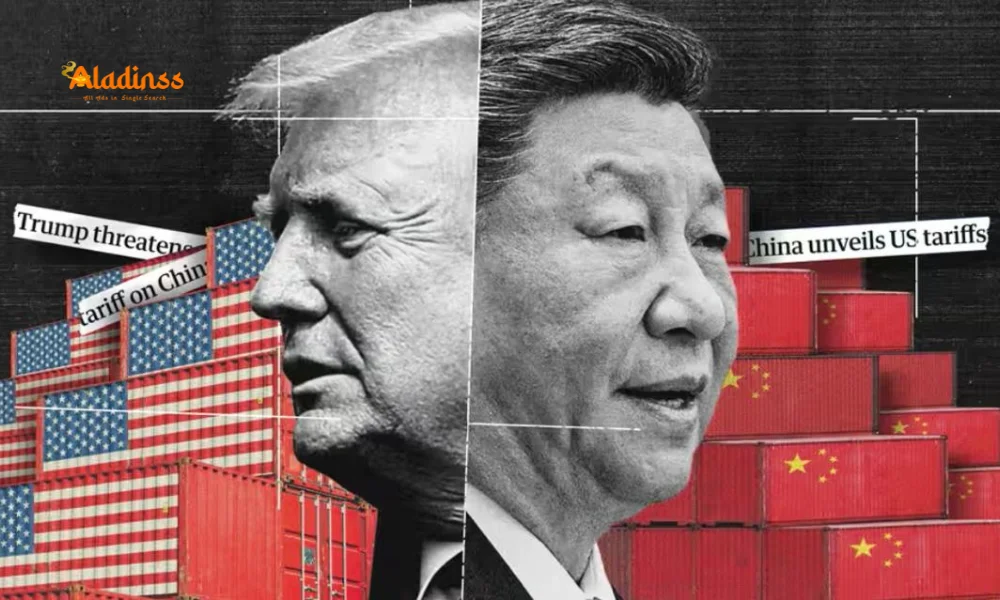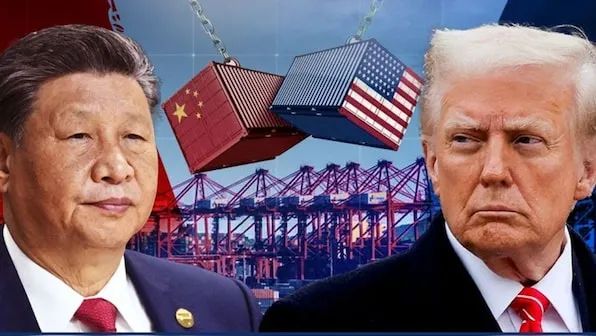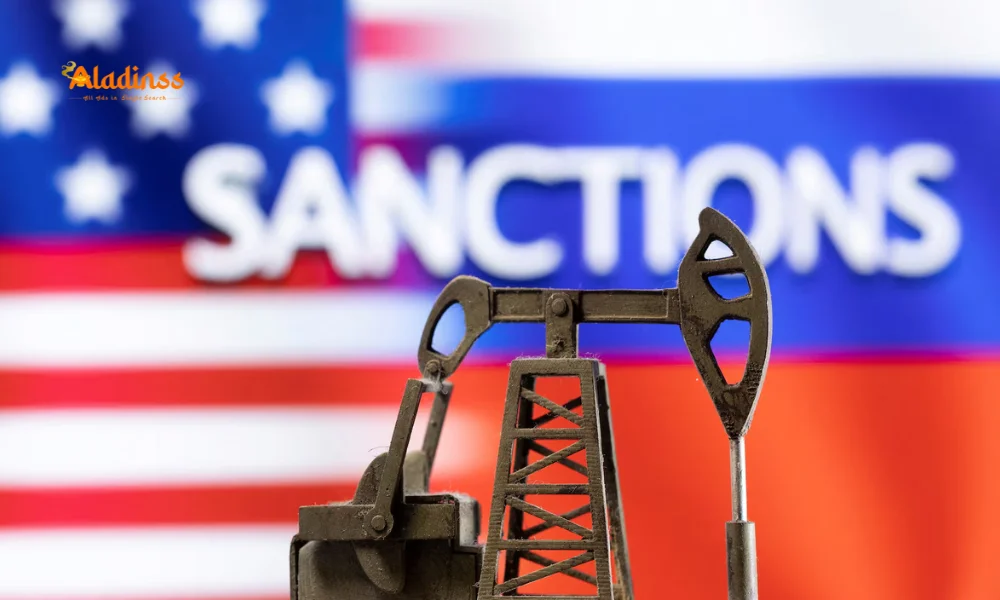China Issues Strong Warning to US: Halt Tariffs or Risk Retaliation

China Warns US Over Trade War: 'Correct Mistakes or Face Response'
On October 23, 2025, a senior Chinese diplomat, Xu Wei, issued a stern warning to the United States amid escalating US-China trade war tensions, urging Washington to reverse its aggressive tariff policies or face retaliatory measures. The statement follows President Donald Trump’s announcement of an additional 100% tariff on Chinese imports, effective November 1, compounding the existing 155% tariffs. This move, part of Trump’s strategy to pressure nations indirectly supporting Russia’s war economy, has intensified global trade disputes, with China vowing to protect its economic interests.
Speaking at an event in Kolkata, Xu Wei, a top Chinese official in India, emphasized that China prefers cooperation over conflict but will respond decisively if pushed. “The US must correct its mistakes, or we will take necessary steps to safeguard our rights,” he declared. The diplomat’s remarks highlight the growing strain in US-China relations, as both nations navigate a complex geopolitical landscape marked by trade disputes and strategic rivalries.
Trump’s Tariff Escalation and China’s Response
President Trump’s decision to impose steep tariffs on Chinese imports is part of his “secondary tariff” strategy, aimed at countries perceived to support Russia’s wartime economy through energy trade. The new 100% tariffs, announced last week, build on the existing 155% levies, significantly raising the cost of Chinese goods entering the US market. Set to take effect on November 1, these measures are expected to disrupt bilateral trade, which has already been strained by years of economic tensions.
Xu Wei, addressing the issue, reiterated China’s desire to avoid a trade war but stressed its readiness to act. “Cooperation benefits both nations, but confrontation harms everyone,” he said, urging the US to reconsider its approach. The diplomat’s call for the US to “correct its mistakes” reflects China’s frustration with the escalating tariffs, which Beijing views as a direct challenge to its economic stability and global influence.

India-China Cooperation Amid Global Trade Tensions
Amid the US-China trade dispute, Xu Wei highlighted the strengthening economic ties between India and China as a potential counterbalance. Speaking at the Chinese Consulate in Kolkata, he emphasized the importance of mutual cooperation between the two Asian giants, especially as both face trade challenges from the US. India, too, is grappling with US tariffs of up to 50% imposed in August due to its continued purchase of Russian oil, placing it in a similar position as China.
“India and China must strategize together to address these global challenges,” Wei stated, underscoring the benefits of collaboration. He announced the resumption of direct flights between India and China starting October 26, a move aimed at enhancing connectivity and fostering people-to-people exchanges. This development is expected to boost tourism, business, and cultural interactions, further solidifying India-China economic ties.
Boosting Connectivity Through Visa and Travel Initiatives
Xu Wei revealed that the Chinese Embassy in New Delhi, along with consulates in Kolkata and Mumbai, has issued 280,000 visas to Indian citizens in 2025, with projections to exceed 300,000 by year-end. This significant increase in visa issuance reflects growing interest in travel and business opportunities between the two nations. The resumption of direct flights is expected to further facilitate these exchanges, making travel more accessible and affordable for Indian citizens.
The enhanced connectivity is a strategic move to strengthen bilateral relations at a time when both countries face external economic pressures. By fostering closer ties, India and China aim to create a united front to navigate the complexities of global trade dynamics, particularly in the face of US-led tariff policies. The India-China direct flights initiative is a tangible step toward deepening economic and cultural collaboration.
Global Implications of the US-China Trade War
The escalation of the US-China trade war has far-reaching implications for the global economy. The additional tariffs on Chinese imports could disrupt supply chains, increase costs for US consumers, and affect industries reliant on Chinese goods. For China, the tariffs threaten export-driven growth, prompting Beijing to explore alternative markets and strengthen ties with other nations, such as India. The trade dispute also risks escalating into broader geopolitical tensions, given the strategic rivalry between the two superpowers.
The US’s “secondary tariff” approach, targeting countries indirectly supporting Russia’s war economy, adds complexity to the global trade landscape. India’s inclusion in this strategy, due to its Russian oil purchases, underscores the interconnected nature of international trade and geopolitics. As both India and China face US tariffs, their collaboration could reshape regional economic dynamics, potentially counterbalancing Western influence in Asia.
Economic Impacts and Potential Retaliation
The imposition of 100% tariffs on Chinese imports, on top of the existing 155%, could significantly reduce the competitiveness of Chinese goods in the US market. This could lead to higher prices for consumers and disruptions in industries such as electronics, automotive, and consumer goods, which rely heavily on Chinese manufacturing. For China, the economic fallout could prompt retaliatory measures, such as imposing tariffs on US exports or restricting access to critical resources like rare earth minerals.
Xu Wei’s warning that China will “take necessary steps” suggests that Beijing is preparing a strategic response. Potential measures could include increasing trade with non-Western markets, diversifying supply chains, or leveraging its influence in international organizations. The Trump tariffs China policy has pushed China to accelerate efforts to reduce its dependence on the US market, a trend that could reshape global trade patterns in the coming years.
India’s Role in the Trade War Landscape
India’s position in the US-China trade war is complex, as it faces its own trade challenges with the US. The 50% tariffs imposed on India in August, due to its Russian oil purchases, have strained US-India economic relations. Xu Wei’s call for India and China to collaborate reflects a shared interest in mitigating the impact of US policies. By strengthening economic ties, the two nations can create a more resilient regional economy, less vulnerable to external pressures.
The growing economic engagement between India and China, highlighted by the visa surge and upcoming direct flights, signals a strategic alignment. Both countries are major players in Asia, with significant influence in global markets. Their cooperation could lead to new trade agreements, joint infrastructure projects, and enhanced cultural exchanges, fostering stability in a region affected by global trade disputes.
Strategies for Navigating Trade Challenges
To address the challenges posed by the US tariffs, China and India can adopt several strategies:
- Strengthen Bilateral Trade: Increase trade agreements to boost economic cooperation and reduce reliance on Western markets.
- Diversify Markets: Explore new export destinations in Africa, Southeast Asia, and Latin America to offset losses from US tariffs.
- Enhance Connectivity: Expand initiatives like direct flights to facilitate business and tourism exchanges.
- Invest in Technology: Develop domestic supply chains for critical industries to reduce dependence on US imports.
- Leverage Regional Forums: Use platforms like BRICS and SCO to advocate for fair trade practices and counter Western policies.
These strategies can help both nations mitigate the economic impact of the US-China trade war and build a more resilient economic framework. Collaboration on infrastructure, technology, and trade could position India and China as leaders in the global south, challenging the dominance of Western economies.
The Broader Geopolitical Context
The US-China trade war is unfolding against a backdrop of complex geopolitical dynamics. Trump’s tariffs are not only an economic tool but also a strategic move to counter China’s growing influence and its indirect support for Russia through energy trade. The inclusion of India in the tariff regime reflects the US’s broader strategy to pressure nations aligned with Russia, complicating global alliances.
For China, the trade war represents a challenge to its economic model and global ambitions. Beijing’s response will likely involve a mix of economic retaliation and diplomatic outreach to build alliances with countries like India. The strengthening of India-China ties could shift the balance of power in Asia, creating a counterweight to US influence and fostering a multipolar world order.
Looking Ahead: A Call for Cooperation
As the US-China trade war intensifies, the global economy faces uncertainty. Xu Wei’s remarks underscore China’s willingness to negotiate but also its readiness to respond if provoked. The resumption of direct flights and the surge in visa issuance to Indian citizens signal China’s commitment to building stronger ties with India, a key partner in navigating these challenges.
The path forward requires careful diplomacy and strategic planning. By fostering cooperation, China and India can mitigate the impact of US tariffs and strengthen their economic resilience. The US-China trade war 2025 is a defining moment for global trade, and the actions of both nations will shape the future of international relations and economic stability.
Comment / Reply From
No comments yet. Be the first to comment!












